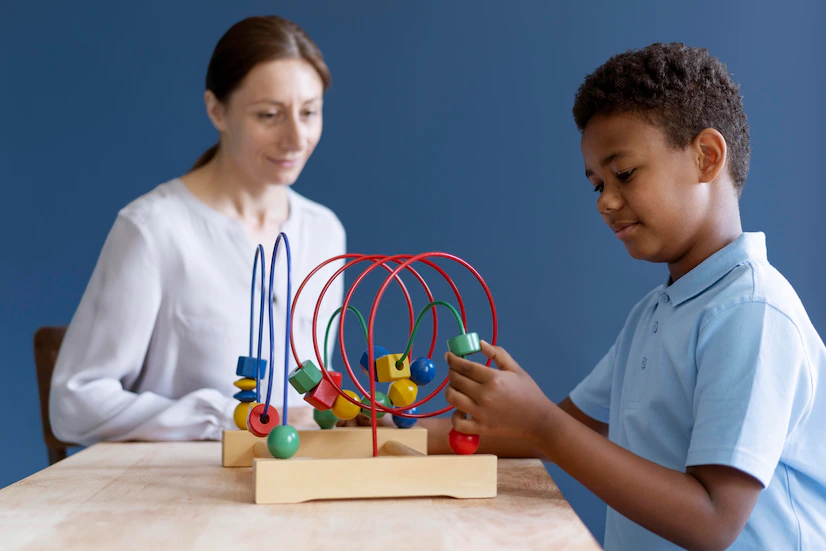Parenting Tips : Good parents strive to make decisions in the best interest of their child.
What defines an amazing parent goes beyond their actions; rather, their intention plays an integral part.
Parents don’t need to be perfect. No child is either perfect or imperfect… When we set expectations, this should always be taken into consideration.
Parenting Tips
1) Be A Good Example

Don’t just tell your children what they should do. Showing is always best!
Humans are unique because we can learn through imitation. Our brains are wired to mimic others’ acts and understand them before adopting them into our own actions and lives.
Be the person you want your children to emulate – respect them, model positive conduct and attitude, show empathy towards their emotions — and your child will follow suit.
2) Love Them And Show It In Action

Over-loving your child is not possible; their wellbeing cannot be affected by being shown kindness.
Only your actions in the name of love have the power to transform our world – acts such as financial luxury, tolerance for low expectations, or overprotection can make an impactful statement about love.
Give your child a hug, spend quality time together, have family dinners together and listen to what their concerns are – these are all wonderful ways of showing how much you care!
3) Parenting Should Be Kind And Positive.

Newborns typically possess approximately 100 billion brain cells (neurons) with few connections, and these relationships shape our personalities, influence our actions, and ultimately determine who we are as individuals. Through life events such as birth and marriage they form, strengthen, and eventually define us further.
However, exposing them to negative experiences will hinder their growth in a way which allows them to flourish.
4) Be Your Child’s Safe Haven

Show your child you will always be there for them by being attentive to their signals and sympathetic to their needs. Create an inviting home environment where he or she can explore and relax freely.
Parents with attentive parenting provided their children with improved emotional regulation development, social skill acquisition and mental health outcomes.
5) Talk With Your Child And Assist Their Brains In Integrating

Communication is of vital importance in any relationship, including that with children. An open channel of dialogue will foster better relationships between both parties involved, and allow your youngster to come directly to you with any issues or questions that arise.
However, communication also serves another important purpose for your child: it helps connect different areas of their brain which is an integral component of development.
6) Thinking About Your Own Childhood

Many of us wish to raise our children differently than we were raised, even those who enjoyed an idyllic childhood and upbringing could wish to modify certain aspects of it.
But when we speak, our words often echo back to those of our parents.
Take time to remember your own childhood experiences so you can better understand why and how we parent in certain ways. Create a list of all of the changes you would make as an adult and think through ways they might manifest in reality. Stay aware of any issues so you can adjust your behavior when they arise again.
Don’t give up if at first your efforts do not bear fruit; changing behavior requires much hard work and persistence.
7) Pay Attention To Your Own Health.

As soon as a child enters your life, things such as personal needs or marital health often get put on the backburner. Failure to pay attention could create greater problems later. 8. Make time to work on strengthening your partnership.
Don’t hesitate to seek parenting assistance; taking some “me time” for self-care and stress reduction is essential to mental rejuvenation.
Parents’ physical and emotional care for their children has an immense effect on parenting and family life.
8) No Matter What, Do Not Spank.

Without question, spanking can provide short-term compliance for certain parents – which can be seen as a relief.
This strategy, however, does not educate a youngster in right from wrong; rather it simply inculcates fear of the possible repercussions for any actions they commit and encourages them to avoid engaging in any illegal acts that might lead them into trouble.
9) Remember Your Parenting Goal And Keep Things In Perspective.

Keep Your Parenting Goal in Mind Keeping things in perspective is essential when setting parental goals.
Are You Like Most Parents and Want Your Child to Succeed Academically, Be Responsible, Respect and Live Happily and Satisfactorily?
As is true with most parents, your time may be mostly dedicated to getting through each day.
10) Take A Short Cut By Using Recent Psychology And Neuroscience Findings
Also Refer:- How To Create and Sustain Healthy Corporate Relationships
Parenting has long been one of the most studied topics in psychology. Many parenting strategies, practices, and traditions have been scientifically examined to test, validate, or disprove them.
Here is my go-to science-based parenting book, The Science of Parenting, for all the latest parenting advice and knowledge about raising a child.
Scientific information should not be treated as a one-size-fits-all solution; each child is an individual. Even within an ideal parenting style, there may be numerous beneficial parenting strategies based on your child’s temperament to consider when selecting parenting techniques and strategies for optimal care.


